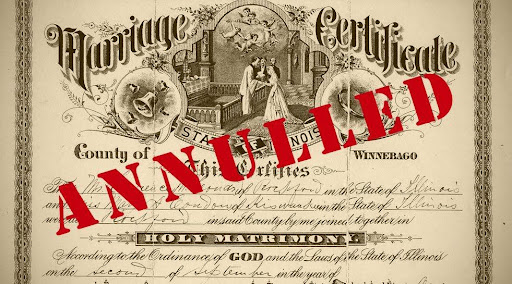Blog Posts
- Adultery
- Children
- Community Spotlight
- Divorce - Custody
- Divorce - Finances
- Divorce Preparation
- Domestic Violence
- Health Insurance
- Legislation
- Prenuptial Agreement
- Relationship
- Spousal Tales
Quick links
The Basics of Annulment

Annulment vs. Divorce: many confuse the two family law processes as being one in the same. One similarity of the two processes is that, like in divorce, the Court has the power to make orders relative to the care and custody of any children born from an annulled marriage. Massachusetts General Laws Chapter 207, Sec. 18. However, annulments and divorces are otherwise vastly different from one another and require different showings in order to be successful in the Probate and Family Court. Read the detailed article about basics of Annulment.
A grant of divorce by the Court terminates a marriage that is legally recognized as valid by the Commonwealth of Massachusetts, meaning no basis for invalidity existed at the time of marriage.
A grant of annulment by the Court, however, terminates a marriage that is deemed invalid from the start. In effect, an annulment treats the marriage as if it had never happened.
Massachusetts General Laws Chapter 207, Sec. 14 governs annulments. The law provides a set of specific and limited circumstances that must be proven as true in order for an annulment to be granted. These conditions speak to whether a marriage is void or voidable and are laid out in sections 15-17 of the statute.
A marriage is deemed void if you were never legally allowed to marry under Massachusetts law. Void marriages are automatically considered void at the time the marriage occurs. Circumstances of a void marriage that can be successfully annulled by the Court are as follows:
1. Bigamy:
Marriage to more than one person at a time is bigamous and illegal under Massachusetts law. A marriage is therefore void if one spouse had a prior existing marriage, and the other spouse did not have knowledge of said prior marriage.
2. Incest, Consanguinity, and Affinity:
Marriage to one’s close relative is incestual and illegal. Therefore, a marriage between a person and their family member is deemed void under Massachusetts law.
A marriage is deemed voidable if you were not legally allowed to marry at the time because of a particular troubling issue or circumstance, but the Court nevertheless recognizes the marriage unless it is voided at the option of either party. Circumstances for annulment of voidable marriages primarily are supported by the principle that both parties have the ability to consciously consent to marriage in order for the marriage to be valid. These circumstances are as follows:
3. Lack of mental competence:
As a matter of public policy, the Court deems a marriage voidable if either party was mentally incompetent at the time of marriage, and thereby incapable of adequately consenting to marriage.
4. Impotency:
The court deems a marriage voidable if, at the time of marriage, either party was physical incapable of engaging in sexual intercourse and/or consummating the marriage, and the other party did not have knowledge of said impotency.
5. Underage:
Underage marriage has long been a matter of public policy in Massachusetts as it relates to abuse of minors. Massachusetts’ legal age of consent for marriage is 18 years old, therefore, marriage to a person under the age of 18 is deemed voidable and eligible for annulment, unless consent is granted by the minor’s parent(s) and the Court.
6. Fraud/Deception:
Marriages are voidable if either party believes and can successfully prove to the Court that the marriage was entered into based on fraud or deception, and thereby lacking full consent. The fraud or deception must go to the heart of the marriage itself. If the aggrieved party knew or should have known of the fraud at the time of the marriage, then they are considered to have consented to the deception annulment will not be granted.
Sometimes, parties believe that annulments can be successful for short term marriages of a year or less. The Court does not deem a marriage invalid, void, or voidable to grant annulment solely because a marriage is short. One of the above circumstances for a void or voidable marriage must exist in order for there to be a valid basis for annulment. Annulments may be granted for void/voidable marriages regardless of the length of the marriage.
If none of the above conditions apply at the time of marriage or can be successfully proven to the Court, then parties will not be granted an annulment. If the parties seek to have the marriage terminated without any of the above conditions, they must instead seek termination via the divorce process.
If you believe your marriage meets one of the above conditions, Massachusetts annulment forms can be found here.
Contact the Law Offices of Wyckoff Nissenbaum with further questions or for assistance with an annulment.